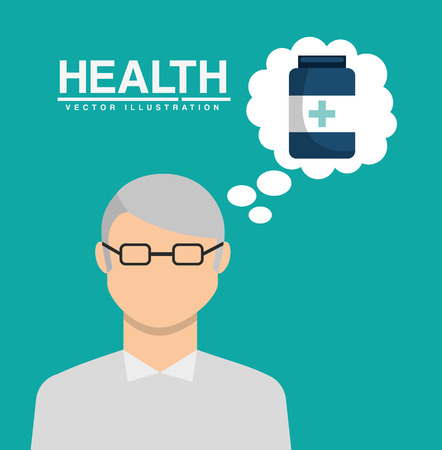1. The Importance of Medication and Health Routine Management
For many people living in the United States, especially those with chronic conditions or disabilities, keeping up with daily medication and health routines can be a real challenge. Occupational therapy (OT) plays an important role in helping people manage these tasks, making sure that individuals can stay as healthy and independent as possible.
Why Is Managing Medication and Health Routines So Important?
When medication schedules or daily routines are missed or not followed correctly, it can lead to serious health problems. For example, missing a dose of medication for diabetes or high blood pressure may cause symptoms to get worse or result in an emergency. Daily health routines like checking blood sugar, exercising, or following a special diet are just as important as taking medications on time.
How It Affects Independence and Quality of Life
Staying on top of these routines helps people take control of their own health. It allows them to avoid unnecessary hospital visits, keep their symptoms under control, and feel more confident in their daily lives. When someone manages their medication and health routines well, they often need less help from others and can do more things they enjoy.
Common Challenges Faced by Individuals
| Challenge | Example | Impact |
|---|---|---|
| Forgetfulness | Missing doses due to memory issues | Worsening of condition, increased risk of complications |
| Complex Schedules | Multiple medications at different times of day | Confusion, skipped doses, stress |
| Physical Limitations | Trouble opening pill bottles or using medical devices | Missed medications, frustration, dependency on others |
| Lack of Motivation | Feeling overwhelmed by routine tasks | Poor adherence to health plans, decreased well-being |
The Role of Occupational Therapy in Management
Occupational therapists work with individuals to create personalized plans that fit into their daily lives. They teach practical strategies to remember medications, organize supplies, and make daily routines easier to follow. By addressing both physical and mental barriers, OT helps clients build confidence and skills for better self-management.
2. Role of Occupational Therapy in Supporting Medication Adherence
Occupational therapists (OTs) play a vital role in helping people manage their medication and health routines, especially in the context of American lifestyles. OTs work closely with clients to develop personalized strategies that make sticking to medications and daily health tasks easier and more effective. Let’s take a closer look at how occupational therapy supports medication adherence through collaboration, education, reminders, and adaptive methods.
Collaboration and Personalized Planning
OTs start by getting to know each client’s daily routine, challenges, preferences, and goals. By understanding each person’s unique lifestyle—whether they’re balancing work, family, or social activities—OTs can suggest solutions that fit right into their everyday life. This collaborative approach ensures strategies are practical and sustainable.
Common Challenges OTs Address
| Challenge | How OTs Help |
|---|---|
| Forgetting doses | Setting up reminder systems like phone alerts or pill organizers |
| Busy schedules | Integrating medication routines into daily habits (e.g., after brushing teeth) |
| Vision or dexterity issues | Recommending easy-open bottles or color-coded labels |
| Lack of knowledge about medications | Providing simple education on medication purpose and side effects |
Education for Better Understanding
In the U.S., many people juggle multiple prescriptions or over-the-counter medications. OTs offer clear explanations tailored to the client’s level of understanding. They may use visuals, written instructions, or digital tools to help clients remember what each medication is for and when to take it.
Practical Education Techniques Used by OTs:
- Creating medication charts with pictures or icons
- Offering “teach-back” sessions where clients repeat instructions in their own words
- Using smartphone apps designed for Americans, like Medisafe or MyMeds
Reminders That Fit American Lifestyles
Many Americans rely on technology in their daily lives. OTs recommend reminder systems that fit easily into modern routines. These can include:
- Setting recurring alarms on smartphones or smartwatches
- Using voice assistants like Alexa or Google Home to set verbal reminders
- Pillboxes with built-in alarms for those who prefer low-tech solutions
- Email or text message reminders linked to pharmacy services available in the U.S.
Adaptive Methods for Independence
If someone has trouble opening bottles, reading labels, or remembering steps due to physical or cognitive limitations, OTs introduce adaptive equipment and methods. Some examples include:
- Pill splitters or crushers for easier swallowing
- Magnifying glasses attached to pill bottles for better readability
- Pre-filled blister packs prepared by local pharmacies for convenience and safety
- Labeled baskets at home stations (like kitchen counters) as visual cues for taking meds during meals—a common American habit
The Occupational Therapist’s Ongoing Support
An important part of occupational therapy is checking in regularly to see what’s working and what needs adjusting. Life changes—like starting a new job, moving homes, or adding new medications—can affect routines. OTs are there every step of the way to modify plans so clients stay healthy and independent.

3. Assessment of Barriers and Individual Needs
Occupational therapists (OTs) play a vital role in helping people manage their medications and health routines. The first step is to assess what might make these tasks difficult for each person. Everyone’s situation is different, so OTs look at personal habits, the home environment, and cultural background. Here are some common barriers:
Personal Factors
Some people may forget to take their medication, especially if they have a busy schedule or memory challenges. Others may have trouble opening pill bottles due to arthritis or limited hand strength. OTs consider these factors when planning support.
Environmental Factors
The setup of a persons home can also be a barrier. For example, if medications are stored in hard-to-reach places or there are too many distractions, it can be easy to miss a dose. OTs help identify these challenges and suggest simple changes, like keeping medicine in a visible spot or using organizers.
Cultural and Social Factors
Cultural beliefs and routines can influence how someone manages their health. For instance, some people may prefer traditional remedies or have specific times for self-care based on religious practices. Language barriers can also make it harder to understand prescription labels or doctor’s instructions. OTs respect these differences and work with clients to find solutions that fit their lifestyle.
Common Barriers and OT Strategies
| Barrier | Example | OT Strategy |
|---|---|---|
| Forgetfulness | Missing doses due to memory problems | Using alarms, pill organizers, or reminder apps |
| Dexterity Issues | Trouble opening bottles because of arthritis | Recommending easy-open containers or adaptive tools |
| Lack of Technology Access | No smartphone for reminder apps | Suggesting paper checklists or simple alarm clocks |
| Cultural Beliefs | Preference for traditional remedies over prescribed meds | Collaborating with family and respecting traditions while educating about medication safety |
| Language Barriers | Difficulty reading English instructions | Providing translated materials or using visual aids |
The Importance of Individualized Assessment
No two people are alike, so OTs take time to understand each person’s needs and preferences. This personalized approach helps create practical solutions that make daily health routines easier and more successful for everyone.
4. Practical Tools and Technologies
Managing medication and health routines can feel overwhelming, but occupational therapists (OTs) help make it easier by introducing practical tools and technologies that are widely used in the U.S. These tools support independence, improve safety, and help clients stay on track with their health routines. Let’s look at some common devices and digital solutions, and how OTs use them in daily practice.
Pill Organizers
Pill organizers are simple yet effective devices to keep track of daily medications. They come in various designs, such as weekly or monthly boxes, with compartments for each day or specific times (morning, noon, night). OTs teach clients how to fill and use these organizers, making sure they take the right pills at the right time.
Smart Medication Dispensers
Smart medication dispensers are becoming more popular across America. These electronic devices alert users when it’s time to take their meds and only release the correct dose. Some even send reminders to smartphones or notify family members if a dose is missed. OTs work with clients and caregivers to set up these dispensers and build confidence in using them.
Mobile Health Apps
Many Americans rely on mobile health apps to manage their routines. These apps offer reminders for medications, track symptoms, and provide educational resources. Popular examples include Medisafe, MyTherapy, and CareZone. OTs introduce these apps to clients and guide them through installation, setup, and daily use to match individual needs.
Comparison of Common Tools
| Tool/Technology | Main Features | How OTs Help Clients Use It |
|---|---|---|
| Pill Organizer | Simple compartments for organizing pills by day/time; affordable; portable | Demonstrate proper filling; set up schedules; create visual cues or checklists |
| Smart Medication Dispenser | Automated reminders; controlled dispensing; caregiver notifications; secure access | Install device; program reminders; train on responding to alerts; troubleshoot issues |
| Mobile Health App | Medication tracking; alarms; refill reminders; symptom logging; education resources | Select suitable app; assist with download/setup; personalize settings; monitor progress |
The Role of Occupational Therapists in Technology Training
OTs don’t just recommend devices—they ensure clients feel comfortable and confident using them. Training may include step-by-step demonstrations, written instructions, and practicing together until new skills become habits. This hands-on approach helps clients build independence and maintain their health routines successfully.
5. Empowering Clients and Promoting Self-Advocacy
Occupational therapists (OTs) play a key role in helping people take control of their own health routines and medication management. By working together with clients, OTs teach self-management skills, encourage open communication with healthcare providers, and support the development of healthy habits that last a lifetime.
Building Self-Management Skills
Managing medications and health routines can feel overwhelming, but OTs break down these tasks into simple steps. They use easy-to-understand tools, reminders, and schedules so clients can remember when to take their medicines or complete daily health routines. Here’s a look at some common strategies:
| Strategy | Description |
|---|---|
| Pill organizers | Helps keep track of daily doses to prevent missed or double doses. |
| Visual schedules | Uses calendars or charts to show what needs to be done each day. |
| Phone reminders | Sends alerts for medication times or important appointments. |
| Routine checklists | Makes sure all steps in a health routine are followed every time. |
Encouraging Communication with Healthcare Providers
Clear communication between clients and their doctors, pharmacists, and nurses is vital. OTs coach clients on how to ask questions and share concerns about their medications or health routines. This may include practicing what to say during appointments or writing down questions ahead of time. OTs also help clients understand medical instructions, making it easier to follow their treatment plans.
Tips for Talking with Your Healthcare Team
- Write down your questions before your visit.
- Bring a list of all your medications (including over-the-counter drugs).
- Ask for clear instructions and repeat them back to make sure you understand.
- If something doesn’t feel right, speak up—your input matters!
Supporting Lifelong Healthy Habits
The ultimate goal is for clients to build healthy habits that stick. OTs work side-by-side with clients to create routines that fit their lifestyle, culture, and personal preferences. This might include setting realistic goals, celebrating small successes, or adapting routines as life changes. Through ongoing support, OTs empower individuals to become confident in managing their own health both now and in the future.


